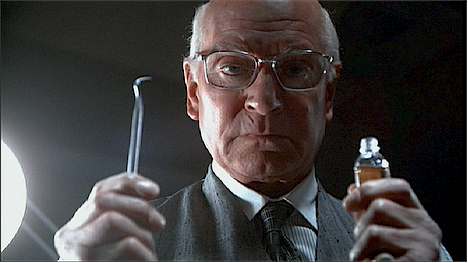Director Ang Lee’s films tackle a wide variety of ostensible subjects and genres, but they’re consistent in conveying antinomian-individualist platitudes.
After his big international success with the superb martial arts saga “Crouching Tiger, Hidden Dragon,” Chinese-born film director Ang Lee continued in the eclectic manner indicated by his earlier films, jumping from genre to genre and style to style. Over the years he has directed the genial “Sense and Sensibility,” the thoughtful historical film “Ride with the Devil,” the gloomy family drama “The Ice Storm,” the homosexual love story “Brokeback Mountain,” and the inept superhero action film Hulk, among others.

This eclecticism and the tendency toward a rather downbeat style have kept Lee from developing a large following among U.S. moviegoers, as has the fact that he tends not to work with the top stars or in popular genres. Thus it was perhaps to be expected that his latest, the historical comedy “Taking Woodstock,” didn’t do much business at U.S. movie theaters in its opening weekend, taking in only $3.7 million and finishing ninth in the box office standings.
Released without much hoopla other than the general publicity surrounding the fortieth anniversary of the Woodstock concerts, the film simply hasn’t generated much interest among audiences. A serious comedy with a homosexual lead character plus a cross-dressing Marine and a variety of other cute, quirky types is just not any kind of an original idea these days. The movies are full of such characters, and we’ve all heard just about enough about Woodstock.
Despite the odd variety of subject matter, time periods, and geographic locations of his films, Lee has in fact been consistent in one way: conveying modern antinomian-individualist platitudes and shibboleths. For years he has functioned as the champion of the social outsider–a position guaranteed to earn plaudits from the contemporary media elite. Thus his Academy Award-winning and ecstatically praised “Brokeback Mountain” was perhaps the clearest distillation of the point of view evident in all of his films.
Although Lee’s passion for individualism to the point of antinomianism has sometimes had very interesting results–as in “Ride with the Devil,” with its open sympathy for the Confederacy–it has more often resulted in compendia of social-liberation cliches.
“Taking Woodstock” follows this template exactly. It assumes the U.S. elite’s accepted point of view of Woodstock as a critical event in the nation’s much-needed process of liberation from stifling bourgeois conformity, etc., which ushered in a new world of greater authenticity that has unfortunately been continually thwarted by forces of repression, especially business people and those vile and pesky fundamentalist Christians who still somehow infest the republic despite freely available abortions.
This cliched and indeed platitudinous notion was boring and silly when Milos Forman brought it to the big screen in “Hair” in 1979, and it is particularly obsolete today, when there is an entire genre of stoner comedies about young people living the Woodstock life while enjoying the benefits of bourgeois comfort and prosperity, plus a wider genre of zany comedies centering on the amazingly free and indeed feckless lives of American young people. If today’s young people are being oppressed by Puritan witch-hunters, there’s very little evidence of it. The public schools, run by an aggressively secular government, are in fact the real bane of their lives.
Thus the idea of Woodstock Nation as something distinct from the rest of American life and in fact quite heroic is simply absurd and fatuous in a nation populated in good part by what columnist David Brooks calls the Bohemian Bourgeois–people who are able to live as freely as hippies in their free time while still enjoying the prosperity and stability of bourgeois life.
No, the real story of the contemporary United States is not a yearning for liberation from repressive Christian theocrats. On the contrary, as the Tea Party movement and related phenomena make clear, the real concern is for liberation from the strangling hand of an elitist government and a desire for a more bourgeois–and family-friendly culture.
In such a context, there should be little wonder why audiences don’t rush out to subject themselves to a couple of hours of cute, smug, elitist cliches. They get enough of that on the nightly news.
COMMENTS
Please let us know if you're having issues with commenting.